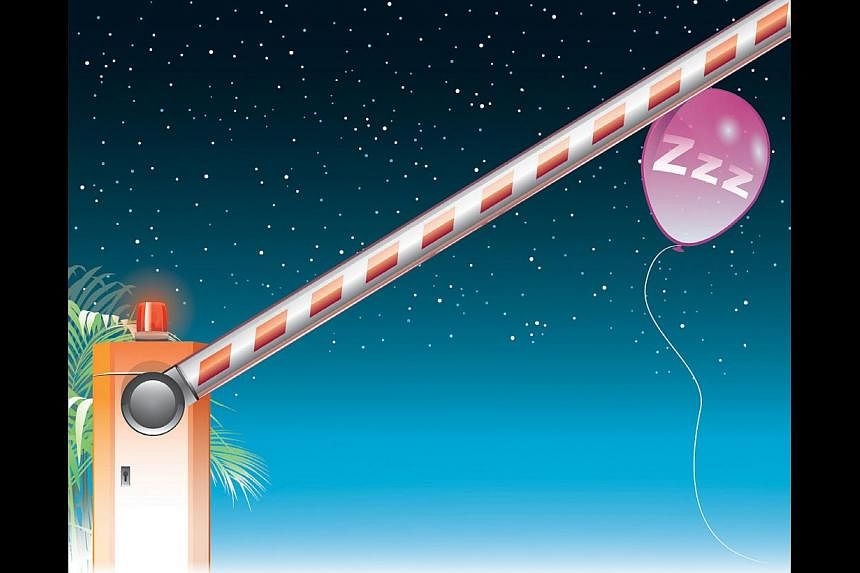Two events last week made me think that Singapore operates like a dual-track society sometimes.
The first was the surprise move by the central bank to slow the rate of appreciation of the Singdollar. This comes as a strong Singdollar is less necessary to combat inflation, which has been falling. A weaker Singdollar may also boost growth as exports become less costly abroad.
Some laud the move; others think the Monetary Authority of Singapore is over-cautious. But no one questions that it is a proactive move to avoid future shocks.
That instinct to scan global headwinds to see what might upset tiny Singapore and then take pre-emptive, decisive action is ingrained in economic institutions like MAS.
It helped Singapore survive the September 1985 attack on the Singdollar when currency speculators were shorting the dollar.
But other parts of Singapore Inc - the domestic aspect - operate sometimes like a sleepy hollow.
Take the other big news item last week. The Housing Board awarded the tender for a religious site in Sengkang to an entity that said it would build a Chinese temple with a columbarium.
This was within the rules.
But the company in question is Eternal Pure Land, a company owned by Australian-listed Life Corporation. It is not affiliated to any religious group, let alone a Chinese temple.
How did a commercial entity with a clear profit motive come to be awarded land for a religious site?
In Parliament last Thursday, National Development Minister Khaw Boon Wan admitted that the HDB had let its guard down.
Essentially, the HDB assumed that land for religious sites would attract tenders only from religious groups. Sometimes, the religious group incorporates a commercial entity to bid for the project. It has been that way since 1991.
So officials did not question if the company had a religious group affiliated to it. Explaining why, Mr Khaw said: "Because for a quarter of a century, we never had a for-profit company taking part in such temple tenders, therefore it never crossed the minds of the officials evaluating the tender."
Even without the benefit of hindsight, that points to the complacency of the process and the naivety of individual officials in charge of those tender evaluations.
Lesson? Singapore is no longer a sleepy hollow inhabited by law-abiding, docile citizens who behave as expected. It's a complex terrain, with smart businesses looking at ways to make money, legitimately but cleverly within the rules.
Regulators should have a slightly jaundiced view of human nature, one that hopes for the best but is prepared for the worst, in the sense of expecting people to game the system if they can.
That kind of scepticism and vigilance is especially relevant as we become more of a global city.
In 2011 and 2012, Singapore was hit by a spate of house burglaries, which police attributed to international syndicates.
"The authorities are battening down the hatches to keep out foreign syndicates as Singapore becomes a shining tourist draw, with the integrated resorts and marquee events such as the Singapore Grand Prix," said a report in July 2011.
Among the housebreaking gangs arrested were some from Colombia, Chile and Hong Kong.
Singapore may be relatively free of serious human and drug trafficking, but was a target of overseas crime gangs for opportunistic crimes such as housebreaking, police said then.
No doubt it was in part because the social habits of Singaporeans open us up to such threats. It is common for houseowners to leave doors and windows unlocked. Even window grilles are soft and easily bent. We have a false sense of security borne of living in a society where relatively few are desperate to commit crimes for money.
Many Singaporeans live in a cosy world, where we interact with people with common assumptions and values even across socio-economic strata. There are certain things understood to be off-limits.
But as Singapore becomes a magnet for the world's rich, it will also draw lascivious attention from the world's speculators and criminals.
Some, like the syndicates that broke into homes, will be attracted here to commit crimes.
Others will want to pit their illicit skills against that of regulators of the world's second-safest city (after Tokyo). Think of the bragging rights if a group of hackers succeeds in bringing down Singapore's IT systems to halt the financial trading system of the world's No. 2 wealth management hub.
Singapore was in a way fortunate to have gone through the 2013 hacking scares, when a video purportedly from the hacker group Anonymous threatened a blitzkrieg on Singapore. In the end, the attacks from the self-styled "Messiah" turned out to be by a Singaporean operating from a Kuala Lumpur apartment. A couple of attacks from other hackers caused mischief and embarrassment more than serious damage, when websites of the Prime Minister's Office and Istana were defaced.
The damage from an organised attack by a group of experts could have been much worse.
Singapore responded by setting up a Cyber Security Agency to coordinate public- and private-sector efforts to protect systems of 10 critical sectors, including power, transport and telecommunications.
The snag: It was announced only last week, and will operate only from April. Yet the risk of cyber attacks, and the need for a whole-of-government, indeed whole-of-nation, defence should have been obvious long ago.
Lesson: Be proactive in preparing for global risks. We may not get a second chance.
Every smart businessman looks for opportunities for arbitrage. That includes taking advantage of regulatory loopholes, like the one just exposed that allows a for-profit company to win a bid for a religious site, provided it says it wants to develop a religious building.
The HDB will of course move to close that loophole.
But public agencies throughout Singapore have to comb through their rules to see if any can be exploited by canny businesses or individuals.
It's not just financial services, logistics, pharma companies or start-ups from overseas that are interested in Singapore.
For agencies that take care of Singapore's domestic sector, ranging from health care to eldercare, childcare, infant care and end-of-life care, things aren't Business As Usual. Increasingly, it will be Business Unusual.
But are our rules and regulations world-ready?


